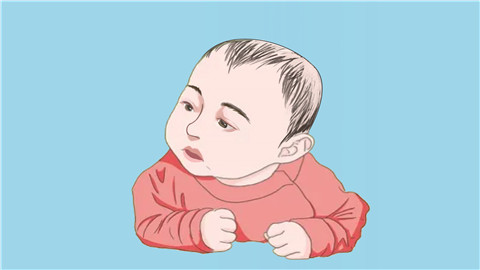Hiccups in newborns may be a signal of what diseases?
Generally, hiccups in newborns are not necessarily caused by diseases. The main causes of hiccups in newborns include improper feeding, exposure to cold, swallowing excessive air, gastroesophageal reflux, and pneumonia. If a newborn experiences frequent hiccups or accompanying abnormal symptoms, it is recommended to seek timely medical evaluation and treatment at a formal hospital. Detailed explanations are as follows:
1. Improper Feeding
Feeding too much milk too quickly or allowing the newborn to cry from hunger and swallow large amounts of air can stimulate diaphragm contractions, causing hiccups. During feeding, control the milk flow speed. Breastfeeding mothers can gently clamp the nipple with their fingers, while those using formula should choose a bottle nipple with an appropriate hole size. After feeding, hold the newborn upright and gently pat their back to help expel air from the stomach, reducing hiccups.
2. Exposure to Cold
The diaphragm of a newborn is not fully developed. When the abdomen or chest gets chilled, the diaphragm may spasm due to cold stimulation, leading to hiccups. It is important to keep the newborn warm, especially by wrapping the abdomen with a pure cotton bellyband. Avoid direct exposure to air conditioners or fans. If the baby has already been chilled, give a small amount of warm water or apply a warm towel gently to the abdomen to relieve diaphragm spasms.

3. Swallowing Excessive Air
Incorrect feeding posture or prolonged crying can cause large amounts of air to enter the gastrointestinal tract, stimulating the diaphragm and causing hiccups. Adjust the feeding posture to ensure proper latching. For bottle feeding, ensure the nipple is filled with milk without air bubbles. Minimize the newborn's crying by promptly meeting their feeding and soothing needs to avoid excessive air swallowing.
4. Gastroesophageal Reflux
A newborn's stomach is horizontally positioned, and the lower esophageal sphincter is not fully developed, making it easy for stomach contents to reflux into the esophagus, stimulating the diaphragm and causing hiccups. After feeding, hold the newborn upright for about 30 minutes and avoid laying them down immediately. When sleeping, elevate the upper body by 15°-30° to reduce reflux. If reflux is frequent, medications such as domperidone suspension, simethicone emulsion, or aluminum magnesium carbonate suspension may be used under a doctor's guidance to alleviate symptoms.
5. Pneumonia
In cases of neonatal pneumonia, lung inflammation may affect the diaphragm, causing diaphragm spasms and hiccups. This is often accompanied by symptoms such as coughing, rapid breathing, and reduced feeding. Prompt medical attention is necessary. Under a doctor's guidance, antibiotics such as cefotaxime sodium for injection, amoxicillin-clavulanate potassium for injection, or piperacillin sodium-tazobactam sodium for injection may be used to control infection. Oxygen therapy and nebulization may also be administered to reduce diaphragmatic irritation caused by lung inflammation.
In daily life, maintain a quiet feeding environment and avoid frequent interruptions during feeding. Monitor the frequency of hiccups and any accompanying symptoms to distinguish between physiological and pathological hiccups. Regularly take the newborn for health checkups to monitor growth, development, and respiratory health.




